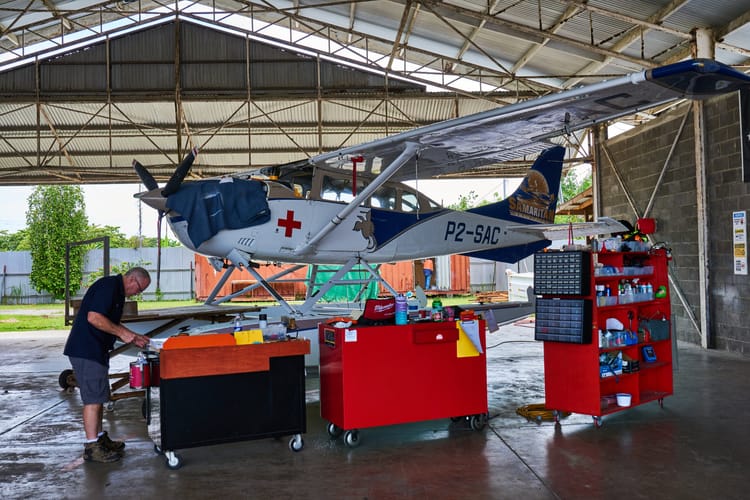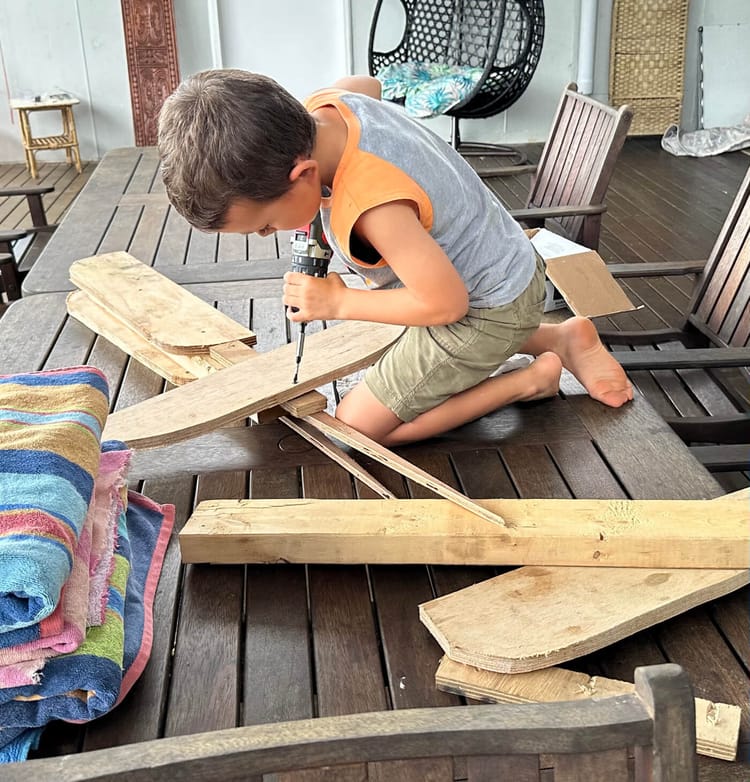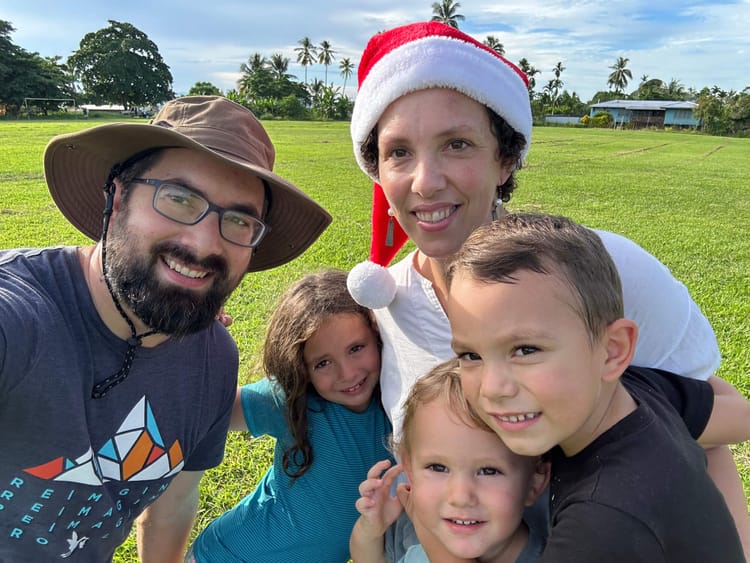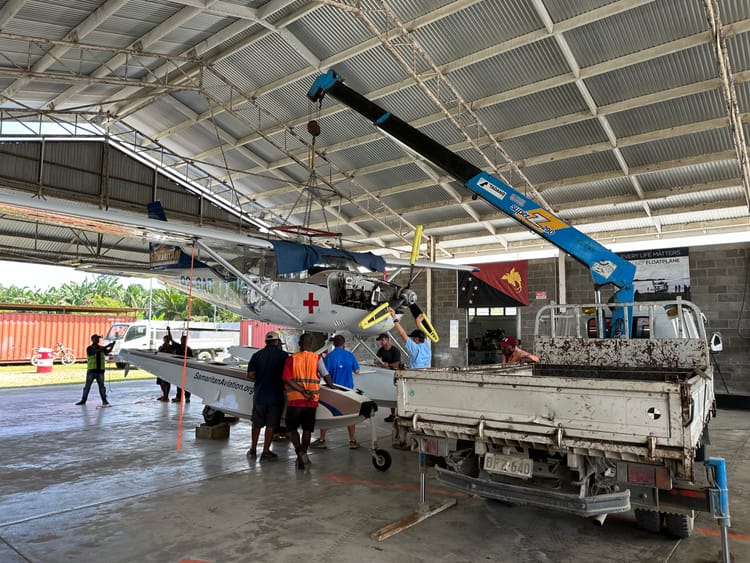Defective Crayons And A Change Of Plans
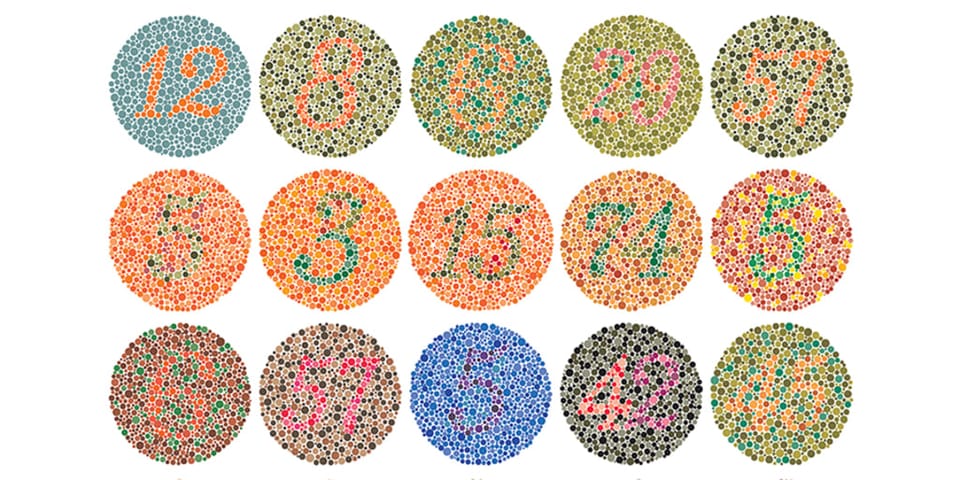
I guess you could say the problem started back when I was in third grade.
In Art Class we were making Christmas cards for prisoners. It was a traditional Christmas outreach activity at the elementary school I attended. Apparently nothing cheers up a prisoner like a haphazard doodling from a third grader reminding him of all the warm memories the rest of the world is busy creating during the holidays. I carefully sketched my masterpiece using the best crayons a private Christian school could afford. My card featured an idyllic landscape with a little cabin, a pond, and some evergreens. It was perfect! My classmate looked over. "Why are all your trees brown?" He asked.
"They're green, booger brains." I thought my argument seemed pretty persuasive.
"And your pond and sky are purple,” he retorted.
"That's blue," I said, rolling my eyes.
Another classmate leaned over. "Nope, that's purple!"
I was irate. I had spent so much time on my card only to find that the crayons I used were defective!
The problem also manifested itself later in life.
I always wondered why my mom insisted on cooking peas and carrots in the same pot. I loved peas but hated carrots. "Why do you always ruin the peas by putting carrots in them?" I finally asked my mom during Sunday lunch. I was busily trying to fish out peas from between carrots.
"It's good contrast. The green and orange really pop."
I stared at the pot of veggies. I squinted. I squinted harder. I didn't see any colors that popped. In fact, the colors looked almost exactly the same.
Later in life I spent good money on an sweatshirt I thought was blue and yellow. I found out later that it was purple and green. Ugh. No wonder my dad made jokes about alternative lifestyles and the fashion preferences that goes with them whenever I wore it.
Another time I was shopping for a motorcycle jacket. I found a light gray one I liked. I declared my intention to purchase it to my friend Bryan, who was shopping with me, and I began walking towards the register. He cleared his throat and asked, “You know that jacket is pink, right?”
I looked down at the jacket. “Oh, haha. Of course! What I wonderful prank I just pulled on you. Of course I’d never buy a pink coat.”
Bryan didn't wasn't convinced and to this day he likes to use the story to illustrate to strangers how colorblind I am. Still, I'm glad Bryan said something.
I bought a blue Ford Escort station wagon that I later found out was green. At least I only spent $500 on it. The color discrepancy was the least of my concerns although I did spray paint it yellow just to be sure.
The problem is that I may be just a little colorblind.
When people find your colorblind, the first thing they do is point to something and ask, “What color is that?” You then guess a color and they chuckle to themselves. How can someone be so blind? Even kindergarteners know colors.
I don’t know of any other disability where people think it’s OK to give you an impromptu test on the severity of your condition.
“You have an amputated leg? Wow! Can you jump over that fire hydrant? You can’t!? Haha, that’s so weird.”
This has affected our ministry plans. Originally our plans were to learn to fix missionary aircraft through an apprenticeship program at MMS Aviation. After that we would move to North Carolina and train with MAG (Missionary Air Group) where I would get my pilot license along with the ratings and flying hours required to fly missionary aircraft. We are three months into our mechanic apprenticeship at MMS Aviation and I’ve been loving it! But I still had my doubts about the next step in our plans - getting my pilot’s license.
I was told by many different people, "Don't worry about being colorblind, there's plenty of colorblind pilots." However, I wasn't sure that these optimistic folks knew just how colorblind I was so when I heard about an AME (Airmen Medical Examiner) who specializes in diagnosing colorblind pilots and giving them options, I promptly went for an evaluation. I failed every test he gave me.
"You are definitely colorblind," he said.
I wish I could get paid like a doctor to tell people obvious things.
What does this mean? I could still get my commercial pilot's license - instrument ratings and all - but I would be limited to day flying. I could not fly at night. Most mission organizations don't fly at night anyway but since it may be required in emergencies, many organizations are uncomfortable with that limitation.
The more I thought about it, the more uncomfortable I became with my struggle with color. I could imagine it now. The radio would crackle,”Hey Josh, this is Mission Control. We ran into a little apocalyptic problem here and the world will end in a ball of fire ten times hotter than the sun but don’t worry, all you have to do is find the grass runway marked with orange paint and land on it. Your objective is to find the doctor in the village. Deliver the antidote to him. He'll be dressed in blue, NOT PURPLE! The guy in purple is evil. It has to be the guy in blue. Good luck. The world is counting on you.”
Also, everybody I met kept telling me how much the mission field needs mechanics. They sounded a bit like a trained parrot. "SQUAAAWK. We need mechanics. SQUAWK! We need mechanics. MECHANICS!"
And the more I learned how much I didn't know about fixing airplanes, the more overwhelmed I felt. This was a lot to learn and I felt like if I had any chance of learning enough to be useful, I needed to specialize.
Plus, it was a matter of practicality. If I was available to move to the field two years sooner, without spending additional thousands of dollars in flight training, to help meet the need that's most pressing, well, why not?
So I have decided to focus on being just a mechanic.
Most people hear I quit the pilot program and start showering me with sympathy. “Oh you poor man. You’re stuck with being just a mechanic. Oh that’s just awful.”
Yes, I might as well have leprosy. But somebody's gotta do it.

